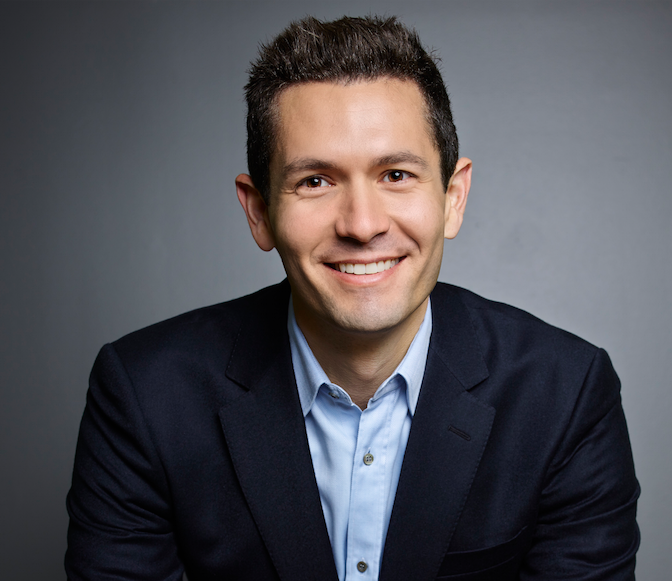Quick Answer
Earlier this year I told an old friend that my startup, Mighty, was preparing to launch a consumer service that would compete with personal injury (PI) law firms. I’d been keeping our plans quiet because we have more than 5,000 PI law firms as software customers today, and they’d soon become who we’d be competing with.
“My dad is doing personal injury cases,” she interjected. I was surprised: Her dad is a prominent corporate lawyer, not the type of person I associate with PI. “It’s all for friends of friends who come to him after accidents and need help. He’s not looking to make money off them—it’s actually taking up quite a bit of his time. He just wants to make sure they’re okay.”
Intrigued, I asked, “Why didn’t your dad just refer them to a personal injury lawyer he knows?”
She didn’t flinch: “My dad would never refer people he knows to one of those sharks.”
“So, what would Mighty’s new service do?” she asked.
“I could talk for 20 minutes about how different our new service is from anything in personal injury today,” I said. “But instead, I’ll just describe it this way: It’s a service that your dad would feel comfortable referring his friends to. It’s what I wish I had built seven years ago when I first founded Mighty.”
PI is riddled with bad incentives
It was seven years ago when I first heard the term “chop shop.” A chop shop is a medical provider in PI who is known for recommending surgery to patients at rates far above the industry average.
Lawyers know that if they refer their clients to a chop shop, those clients will get more aggressive treatment, raising the value of the settlement and therefore, the attorney's fee. The client, on the other hand, gets treatment they don’t need — and they seldom net more money. That’s because clients typically have to pay for all the costs associated with their case, including medical treatment, out of their settlement.
The large number you often see advertised on PI billboards -- as in “We got our client $5 Gazillion dollars” -- is the total settlement number, not what the client actually takes home at the end of the case. After the settlement is used to pay medical providers for their care, their health insurance company for any treatment it covered, lawyers for their service, case expenses, and any financing costs, the client receives a payment that’s on average well less than half of the total settlement. Most PI lawyers don’t explain this to clients until the end of their case. And not only that, but the millions PI lawyers advertise they settle cases for doesn’t apply to many clients as the median personal injury case settles for $16,000 and 75% settle for less than $30,000.
PI lawyers bend over backwards to tell injured people that “our interests are aligned with those of our clients” because their fee is calculated as a percentage of the settlement and because they only get paid if they win. But that's bullshit. There are subtle but powerful misalignments between the lawyer’s bottom line and the client’s best interest.
Many PI lawyers aren’t exactly shy about the bad incentives, either. One law firm we know sends “virtually all clients to get MRIs” even when they’re not medically justified. For law firms, the incentives are simple. For the vast majority of people who get them and find nothing, it’s the client who pays the cost of the scan. For the small percentage where something is found, the case value increases, resulting in a bigger fee for the attorney.
Charlie Munger famously quipped, “Show me the incentive and I will show you the outcome.” Because PI lawyers are paid a percentage of the total settlement, they are incentivized to: (1) work to inflate the total settlement even when doing so actually harms the client (2) outsource their operational tasks to third-parties as “out of pocket case expenses” so they can pass them onto the client (3) provide as narrow of a service as possible for the client by focusing exclusively on activities that increase the settlement, ignoring all other needs of clients. These incentives encourage behavior that directly hurts the vulnerable when they are at their most vulnerable.
What’s worse, despite innovation helping to transform so many industries to benefit consumers, nobody is talking about consumers’ problems in PI, let alone building anything to solve them. The innovation happening in PI today generates savings for service providers, usually, law firms. This perpetuates the status quo: the savings never make it to the injured party’s pocket, and, ironically, can end up costing the injured party more.
I know this problem all too well.
Mighty’s original sin was chickening out from tackling the “incentive problem”
In 2015, I founded Mighty with a mission to help innocent people after an accident “get a better deal from the justice system.” I couldn’t believe then, and I still can’t believe now, how the people who cause accidents receive a magical service from the likes of State Farm and Allstate. All the while the innocent people who are injured have nowhere to turn but local accident lawyers. Early on in the business, Mighty saw massive opportunities to help the innocent party by using data, litigation finance, and new technology. We raised millions from top VCs and assembled a mission-driven team. By many metrics, we were successful, and many of our products are still widely used in PI today and generate millions in revenue.
But in reality, we chickened out. We held the naive view that if we built tech products that increased efficiencies and savings for PI lawyers and other service providers, those savings would somehow trickle down to injured people. But because we never addressed the fundamental problem of misaligned incentives, they never did. No matter what we did or how hard we tried to work within the existing paradigm, we were stymied by PI lawyers' own interests. It took us years of pain to learn this reality. By the metric of our mission, we’ve failed.
We came to a fork in the road last year. Many of our PI law firm customers were practically begging us to launch a new service where we would handle medical record collection on their behalf for hospitals and other large providers where our current software wasn’t effective. We modeled that we could generate $10M in new revenue in just two years if even a small percentage of our customers used the service.
But there was one catch: the expense of this record retrieval would bypass the firm and rather, be passed on to the injured party. As an out-of-pocket cost of the law firm, they could get reimbursed for it out of the settlement. Worse yet, law firms could only pass the cost to their client if they outsourced it to a company like us. Had the law firm done the record collection themselves, it simply would have been a normal operating expense of the law firm that it would eat.
We had to make a choice: We could sharply increase our revenue and create further efficiency for law firms, but every dollar we made would be another dollar out of the injured party’s pocket. If we chose this path, we would be actively hurting the very people Mighty was founded to help. So many in the industry had already made this Faustian bargain. We couldn’t.
The problem with building a tool that serves someone else’s business is that you don’t control your own fate. But that is about to change.
The solution: Rewire incentives by building a holistic PI service from the ground up
We know that misaligned incentives are the root cause of injustice in the PI industry. The question now is: How do we rewire those incentives, especially given a regulatory landscape in which lawyers still need to play a central role in their clients’ cases? We’ve spent months untangling and redesigning many of the key components of the PI experience into a service that is totally different and new -- one that we’d tell our friends and family to call if they got into an accident. Here are the critical parts of the service we are launching today:
- Clients who sign with Mighty only work with lawyers who play by the rules and charge at least 10% less
Mighty Law is our partner law firm that adheres to a Code of Conduct that sets out standards and practices unlike anything practiced in PI today. For example, Mighty Law lawyers must charge a rate that’s at least 10% lower than industry standard, follow strict disclosures to ensure hyper-transparency, allow their clients to test their services for 60 days with no commitment, and work with Mighty on their client’s behalf -- at no additional cost to the client -- so that Mighty can guide the client in their holistic recovery journey beyond Mighty Law’s legal services.
Why would a lawyer do this? Our bet is that there are enough lawyers who want to do well by doing good and those lawyers will be especially attractive to clients who want something objectively better than what traditional PI lawyers provide. We’re off to a good start with lawyers at Mighty Law that not only have PI experience, but have previously worked in legal aid, as prosecutors, nurses, and other mission-driven professions.
- We share costs with clients, incentivizing us to lower them
The costs that clients have to pay -- legal fees, medical costs, case costs, financing costs, etc. -- are far higher than they should be because law firms, medical providers, financiers, and others charge a premium to take a PI case on “contingency.” There should be a premium, of course, since some cases lose and, for cases that do win, the average cases pays out in 1.5 years, 50% take over 1 year to pay out, and some more than 5 years. But the cost, in our estimation, is roughly double what it should be, even including the risk premium.
While Mighty works to bring all of these costs down, we’re going to help our clients pay many of them. Mighty Law has implemented a cost-sharing mechanism that essentially means that clients get 10% back on most of the expenses associated with their cases -- whether from an orthopedic surgeon working on contingency, financier, expert witness, or from case costs. We made the decision to do this not only because it gives more of the settlement to our clients, but because it aligns our interests with our clients, since we have an incentive to bring these costs down in the near and long term.
- We help our clients with far more than just legal services. We want to be with them for everything that happens on their journey.
I recently interviewed a paralegal at a large PI firm, whom I’ll call Abby to protect her identity. At her firm, Abby was assigned to help a single mother who got rear-ended. Like the 56% of Americans who can’t come up with more than $1,000 in the case of an emergency, the client was struggling to pay rent or put food on the table for her family while she was out of work due to her injury. Abby knew that her client was likely eligible for assistance from a local food bank, but when she asked permission from the managing attorney to help the client apply, the attorney said, “No, that’s not our job.” Abby ended up making the calls to the food bank on her personal time. It’s also when she decided to leave the firm.
The rule of thumb at most PI law firms today is to only help clients in ways that may impact the value of their case. But people after an accident need help with far more than that.
At Mighty, we help clients get their car repaired, find mental health support, facilitate interest-free friends and family loans, and much more. Not only do we make promises to clients to help with (almost) anything and everything that is a result of their accident, but we’re incentivized to do so because we’re compensated by Mighty Law to do this very work. None of the cost is passed to the client.
- We tell the truth, the whole truth, and nothing but the truth
We will never use the total settlement number in advertising without context because it’s highly misleading.
We will never refer a patient to a medical provider that buys lunch for our office or takes Mighty Law lawyers to sports games. We have one policy against accepting gifts and another to disclose any relationship we otherwise may have with a service provider.
We will never allow our lawyers to have settlement quotas, which would incentivize them to settle cases solely to hit business goals.
What we will do is value truth, honesty, and frankness, all while under-promising and over-delivering.
We’re just getting started
Today, we’re launching a service we’re incredibly proud of. Our hope is that years from now, our service will look little like it does today. One of the most profound disappointments of the PI industry is how little injured people have benefited from innovation over the last, well, 50 years. We’re committed to thinking differently.
In the coming months and years, you can expect us to continue innovating, with one singular metric of success in mind: does this directly benefit the innocent person after an accident?
We will be thinking and building in public and I’ll be posting developments on my Twitter and on our company blog. But I know we won’t succeed alone.
When we first launched seven years ago, I painted Property & Casualty insurance companies as the enemy. What’s become clear to me since is that our enemies are not defined by being an insurance company or even a billboard lawyer. In truth, our enemies are only those people who don’t have the innocent person’s best interests at heart. We want to celebrate and support everyone else that does, even if they are competing with us or are on the other side of the aisle.
And not only do we want to celebrate those people, we want to partner with them. If you’re a lawyer who wants to refer a case to Mighty Law and co-counsel, an executive at Geico who wants to find ways to save costs and time on both sides, or an innovator at a tech company working on related problems, email me at js@mighty.com to discuss.
And if you’re a billboard lawyer who is just part of the “system,” we’re going to continue sharing innovations we build for ourselves and our clients with you and your firm as we have been for years. Let’s work together to create a market that innovates, competes to lower prices for clients, and provides a better service to the people who are actually suffering.
And finally, we will continue fighting to change the perception of our space and of people who get injured and seek redress. Throughout history, outmoded ideas and distorted perceptions have restricted innovations that now seem obvious. In the 1860s, P&C insurance was viewed as repugnant and dangerous. People believed that abdicating responsibility to a third party would incentivize recklessness, increase accidents, and distort the legal system by introducing a non-party into the proceedings. Fast forward a century and this free market solution has become so ubiquitous that car insurance is legally required in almost every state.
When we launched Mighty seven years ago, I wrote about my perception of personal injury. And as we embark on this new audacious phase, I return to this story, published in The New Yorker the year that we launched, to remind me of the importance of changing how personal injury is viewed in society:
The story is about venture capitalists Ben Horowitz and Marc Andreessen. Ben describes the process of considering an Internet pawnshop for investment: "People here said, 'It's immoral,' and Marc went bananas. He said, 'If you've got no fucking money, and you need to pawn your watch to pay for your kids to eat—you think that's morally fucking wrong because it offends your sensibilities, you rich motherfuckers?'"
I used to be that “motherfucker”
When I first got into the PI industry, I considered it repugnant and embarrassing, disguising what I did to friends, hoping I would not be doing it long enough for anyone to notice.
Today, years later, I've never been prouder of anything I've ever done. I get out of bed in the morning knowing that there's a real opportunity to fix a systemic injustice for people who cannot afford to wait for actual justice. And I go to bed at night excited because I know the solution is Mighty.
While there will be many obstacles to overcome, Marc's quote reminds me that changing people's deep-rooted perceptions about personal injury might be the most crucial challenge of them all. We have an obligation to help innocent people after an accident get justice.
Seven years later, the game is back on.
Know Your Claim’s Worth—and Settle It
Serious injury or no injury at all, move your case forward instantly from your phone.
Thank you for submitting your information.

About the author
Joshua is a lawyer and tech entrepreneur who speaks and writes frequently on the civil justice system. Previously, Joshua founded Betterfly, a VC-backed marketplace that reimagined how consumers find local services by connecting them to individuals rather than companies. Betterfly was acquired by Takelessons in 2014. Joshua holds a JD from Emory University, and a BA in Economics and MA in Accounting from the University of Michigan.






